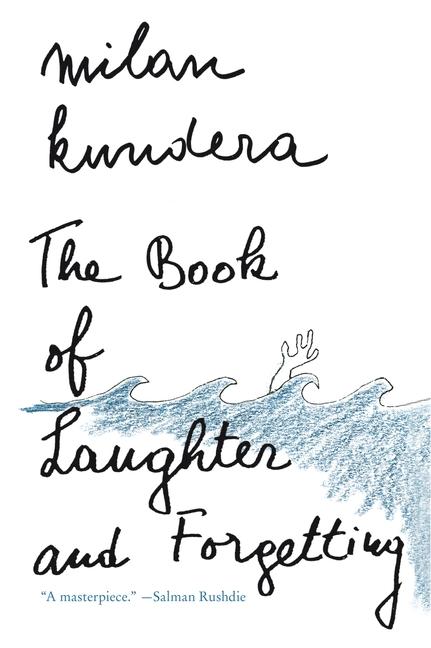
The Book of Laughter and Forgetting
Book Description
Memory is a fragile fortress, easily breached by the tides of laughter and loss. In a world where the past can vanish with a whisper, lives intertwine through love, betrayal, and the haunting specter of forgetfulness. Characters drift through a landscape of surreal family dramas and political unrest, each grappling with their own poignant truths. Dreams collide with harsh realities as the quest for meaning reveals the absurdities of existence. What happens when laughter fades and memories dissolve? Will the echoes of our lives linger, or will we be left in the silence of oblivion?
Quick Book Summary
"The Book of Laughter and Forgetting" is a novel comprised of interwoven stories that explore memory, forgetting, and the interplay between personal and political histories. Set in Communist-era Czechoslovakia, the book traverses themes of exile, loss, betrayal, and the tension between laughter and sorrow. Milan Kundera blurs the lines between fiction and memoir as various characters, including Tamina, Mirek, and others, contend with the erasure of their pasts—both by external forces and by their own choices. The narrative reflects on how individuals and nations alike attempt to suppress uncomfortable truths, and how the act of forgetting can be both a weapon and a shield. Kundera’s distinct voice weaves philosophical inquiry with poignant storytelling, crafting an exploration of how laughter and forgetting shape the human experience.
Summary of Key Ideas
Table of Contents
Memory and Historical Revisionism
Milan Kundera’s novel unfolds through a series of interconnected stories that reflect on the ephemeral nature of memory and the deliberate act of forgetting. Set mainly in Czechoslovakia during and after the Communist coup, the characters’ personal experiences are overshadowed by the large-scale political movements that seek to rewrite history. Kundera highlights the vulnerability of memory to manipulation, both by oppressive regimes intent on erasing dissent and by individuals seeking relief from painful pasts. The act of forgetting, whether imposed or voluntary, becomes central to understanding both private and public histories.
The Interplay of Laughter and Sorrow
Laughter—in its many guises—serves as both a mode of resistance and a tool for trivializing pain. The laughter in Kundera’s world is not simply joyous; it is complex, sometimes carrying undertones of cruelty or detachment. The book draws attention to how laughter can undermine authority or, conversely, render tragedy meaningless. Characters such as Tamina, who longs to preserve her memories amid the absurdities of her loss, illustrate the tension between confronting the past and escaping into laughter or oblivion.
Personal vs. Political Identity
At the heart of the novel lies the tension between personal identity and the pressures of political conformity. Characters struggle to maintain their individuality in a world where the state seeks to define truth. Mirek, for example, believes that the pursuit of truth is essential, yet he finds himself complicit in the very acts of suppression he rails against. The interdependence of love, betrayal, and the need for self-preservation exposes the complexities of living under authoritarian rule, where even intimate relationships are shadowed by suspicion.
Love, Betrayal, and Loss
Throughout the stories, themes of love and loss showcase the fragile connections that bind people together. Kundera’s characters suffer betrayals by lovers, friends, and even themselves, as they attempt to reclaim what has been lost or erased. Tamina’s quest to retrieve her personal notebooks—symbolizing her past and her sense of self—demonstrates how deeply memory interlaces with love, and how the inability to recover what’s lost leads to existential anguish.
Surrealism and the Fluidity of Narrative
Kundera infuses his narrative with elements of surrealism and meta-narrative, blurring the boundaries between fantasy and reality. The structure itself, fragmented and recursive, reflects the instability of memory and history. By weaving together disparate episodes, Kundera suggests that life’s absurdities and contradictions—tragic or comic—form the true tapestry of human experience. In the end, "The Book of Laughter and Forgetting" asks whether, in the face of forgetting, laughter can be both an act of defiance and an acceptance of the world’s irreconcilable complexities.
Download This Summary
Get a free PDF of this summary instantly — no email required.





